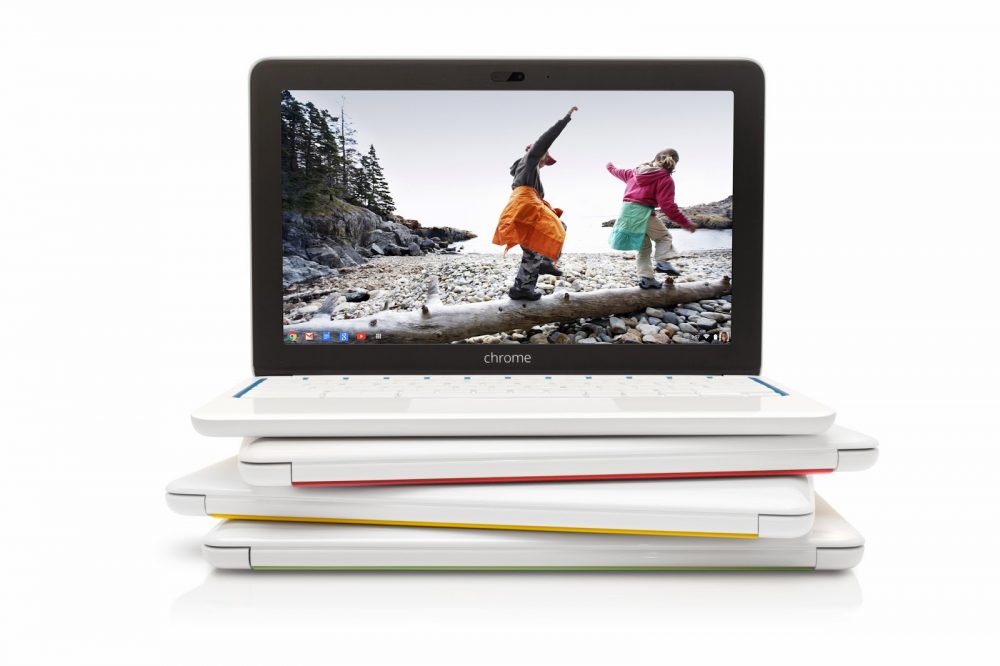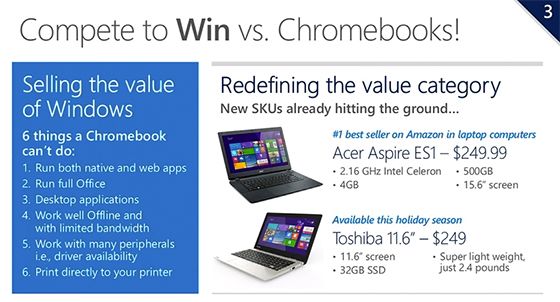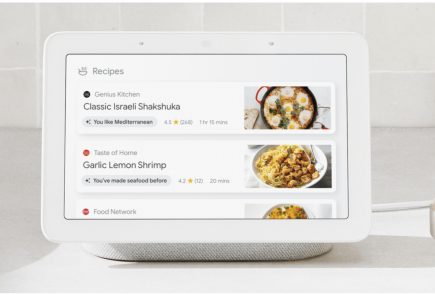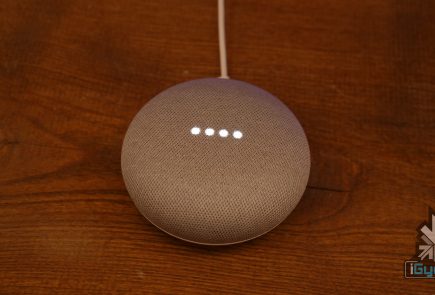Microsoft Is Pulling Up Its Sleeves To Tackle The Chromebook Frenzy

Yesterday, at WPC 2014, Microsoft’s COO Kevin Turner revealed company’s plan to take over Google Chromebook. Turner said that HP is planning to release a $199 laptop running Windows this holiday season. He didn’t provide any specs for HP’s “Stream” device, but he did show detailed $249 laptop options from Acer and Toshiba.
Acer’s low-cost laptop will ship with a 15.6-inch screen and a 2.16GHz Intel Celeron processor, and Toshiba’s includes a 11.6-inch display. It appears that Intel’s Celeron chips will help Microsoft’s PC partners push out cheaper devices in the race to the bottom.
It is also revealed that HP will release its 7- and 8-inch versions of new “Stream” PCs for $99 along with the main variant, and both running versions of Windows. Microsoft has been gradually cutting Windows license costs to help PC makers to reduce their device prices, and it’s clear the company is taking the Chromebook threat seriously now that its popularity is rising day by day.
As Microsoft points out, there are some things you can do on a Windows machine that you cannot on a Chromebook. You can run the full version of Microsoft Office, be sure that most printers and other peripherals will support your device, and run native Windows apps. You can also install the Chrome web browser and do nearly anything you would be able to do on a Chromebook.
But some of Microsoft’s allegation on Chromebook are not entirely true. You can use some Chrome web apps even without an internet connection, use Google Cloud Print to send print jobs to supported devices, Google Drive (or Microsoft Office Web Apps) for some document editing, or even load Ubuntu, Debian, or another Linux distribution if you want desktop apps.
Furthermore, Chromebooks boot quickly, offer a secure platform since apps run in a sandboxed security mechanism, and the ease that comes with knowing that almost all of your data is backed up in the cloud so you can pick up where you left off just by logging into any other machine connected to internet.
Google has been praised for how clean and user-friendly its Chrome OS has been, while Microsoft’s Windows 8 has struggled to catch on since it launched in 2012. Google sold 2.1 million Chromebooks in 2013. Meanwhile, the ultraportable Windows 8 laptop-tablet hybrids declined by 7.4% last year. While Microsoft is now competing on price, only time will tell if the underpowered devices can match the smooth performance of a Chromebook.




















